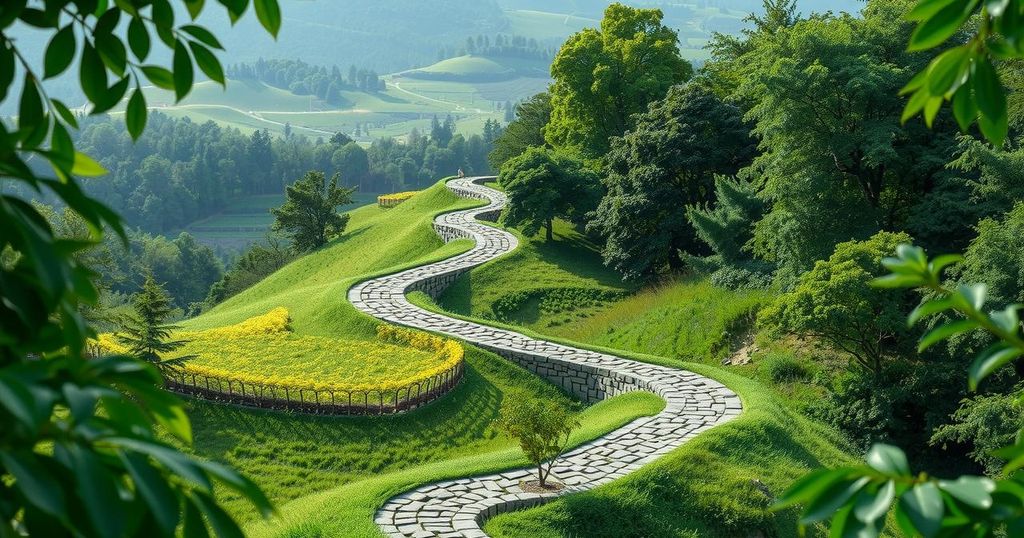Cameroon: Prospects for Another Term Under Paul Biya?

In anticipation of the 2025 elections, President Paul Biya, at 91 years old, is expected to seek an eighth term, reinforcing his position as Africa’s longest-serving leader. Amid concerns regarding his health and criticisms of his governance amidst civil turmoil, Biya’s candidacy is reinforced by party loyalty despite a struggling economy and repressive political climate. The fragmented opposition lacks a coherent alternative, complicating prospects for change.
Cameroon is anticipating presidential elections later in 2025, where the 91-year-old Paul Biya is expected to seek an eighth term, solidifying his status as Africa’s longest-serving leader. As political commentator Dr. John Akpo noted, Biya’s party has expressed strong support for his continued candidacy despite growing concerns regarding his health. Fellow party member Elvis Ngolle Ngolle acknowledged preparations for the elections but deemed discussions on succession premature.
Having governed for over 42 years, a successful reelection campaign would place Biya at 99 years old by the next elections in 2032. Support for Biya even comes from some opposition parties, although Akpo has questioned their authenticity, labeling them as entities that exist primarily to undermine stronger opposition. The current political landscape in Cameroon is described as one where many citizens feel deceived by such alliances.
Biya’s administration is credited with establishing a multi-party system and strengthening ties with Western nations. However, a prolonged civil conflict in the Anglophone regions has adversely affected the economy, with opposition lawyer Tamfu Richard suggesting that Biya’s advancing age may hinder effective crisis management. Critics argue that rather than engaging in dialogue, the president has intensified his repression of dissent, leading to widespread political incarceration.
The ruling Cameroon People’s Democratic Movement (CPDM) leans on support from coalition partners like the Democratic Movement for the Defense of the Republic (MDR). However, support for these partners appears to be waning as evidenced by their limited electoral successes. Nevertheless, they remain critical to the CPDM’s parliamentary control alongside various smaller parties that formed to combat the influence of the Cameroon Renaissance Movement led by Maurice Kamto, a notable opposition figure.
Recently, meetings of Catholic bishops in Buea drew attention as they addressed the political climate, suggesting that improving conditions for citizens should be prioritized. Though some government representatives perceived these comments as opposition to the ruling power, church officials clarified that no demands for Biya’s resignation were made. The Catholic Church holds significant sway over the largely Catholic population, suggesting that its positions may influence public sentiment.
Despite a slight economic recovery projected for 2024, the overall outlook remains fragile, with GDP growth slowing and persistent poverty affecting 23% of the population. Corruption is rampant, with Akpo criticizing the entrenched nature of graft in governance, impacting basic living standards for many citizens, including educators struggling to meet their needs.
Cameroon continues to grapple with significant structural challenges, including subpar infrastructure and reliance on commodity exports. Experts emphasize the need for addressing these issues for sustainable growth. Yet the opposition has not articulated a coherent alternative vision, which complicates the situation as the fragmented opposition has not presented any viable candidate against Biya. Attorney Michele Ndoki articulated sentiments suggesting that some Cameroonians prefer the status quo, even questioning Biya’s capacity to fulfill his presidential duties effectively.
The political landscape in Cameroon is dominated by President Paul Biya, who has been in power for over four decades. Concerns about his advanced age raise questions regarding his ability to lead effectively. In the context of political repression and ongoing civil conflict, Cameroon’s governance and economic situation remain precarious. With the upcoming elections, discussions concerning Biya’s potential succession and political alternatives are increasingly pertinent.
As Cameroon approaches the 2025 elections, the anticipation surrounding Biya’s candidacy is palpable, overshadowed by concerns regarding his age and health. The political environment is characterized by repression of dissent, economic difficulties, and a fractured opposition landscape. While there are growing calls for improved governance and economic management, the lack of a credible alternative to Biya remains a significant obstacle to change in Cameroon.
Original Source: www.dw.com







